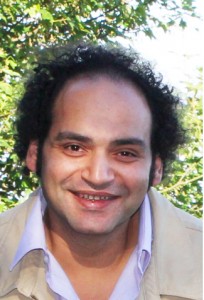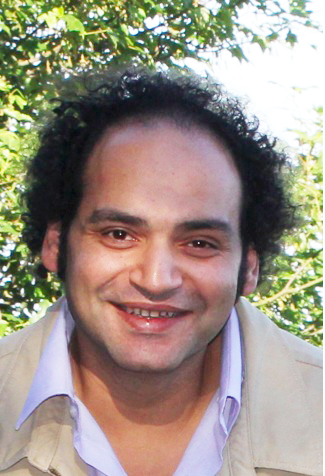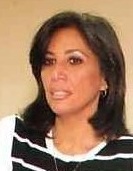
I sometimes look back to the few days that followed Mubarak’s ousting. There was a period of maybe 10 or 15 days where nothing prevailed but sheer happiness, or perhaps a gripping sense of achievement that corners you in a blissful state. There was ambition in the air, the unthinkable became suddenly possible, those who were buried in silence found their voice and those who had their minds chained with frustration and disappointment suddenly had an orgasm of ideas. Despite how ridiculous it may sound today, our revolution had a pink cloud.
During that time, I must have had at least 20 conversations with different people about their dreams after the revolution and what they wanted to see change. I remember listening to ideas that were as serious as an Egyptian bill of rights and others that were as cheesy as having pink public buses. It did not matter what the ideas were, how good, bad, silly or cheesy was not important. The real achievement was the fact that people were thinking again, dreaming again, slowly and subtly picking up that talent they were born with; imagination.
But as soon as people found their will to dream, many hands reached out to control those dreams and seize them. Suddenly your imagination was not your own to use as you please, for using it became a sin if it dared not conform with religion. From the rubble of ignorance, from the womb of fanaticism, from the darkness of dogma; religious radicalisation uncovered its hideous face.
Religion was not just vulgarly and forcibly injected into social and political spaces where it never belonged, it was also tailored and customised according to the demands of different occasions and the changing interests of those who make a living out of manipulation in religion’s name.
What you wear, how you eat, the way you choose to socialise, how you express yourself, what you believe and don’t believe in, even your most intimate moments in life; they all became subject to religious criticism. Your lifestyle, the little details that define you, your right to be the individual you choose; all these basic components of who you are became threatened by the hate speech of men who claim to speak in God’s name.
But religious radicals did not stop at trying to impose a code of collective morality that suits their corrupt interpretation of religion; they actually started to use religion against those who oppose them. How many good ideas were aborted because they were somehow found irreligious?
How many potentially good politicians did we lose because they were labelled “secular” or “liberal” or simply “morally decadent”? How many important decisions we should have taken and did not because religion wrongfully occupied a place in the civil realm? This radical and possessive use of religion ensured the constant demonisation of the revolution, distorted all meanings of difference, tolerance and inclusion and became a mere weapon in the hands of power hungry animals. One day we will need to think thoroughly about the roles of both religion and the state in diverting this revolution off-course.
If we plan to continue this revolution we will have to face the inevitable one day, the struggle over the role and the place of religion must be fought. It will be an ugly battle indeed, one where those who will dare to speak will be labelled, stereotyped and most probably even sued. We will have to explain and re-explain that the problem is not with religion, the problem is with those who decided to tarnish its fundamental meanings and make it responsible for what it never preached.
Maybe one week from now, on 25 January, we need to remember that the struggle is not only over state institutions and majority/minority politics; there is a lot more at stake. When religious radicalisation threatens the very individuals we chose to be, it is not a struggle of politics, it is one of identity.



